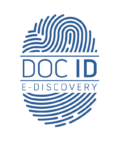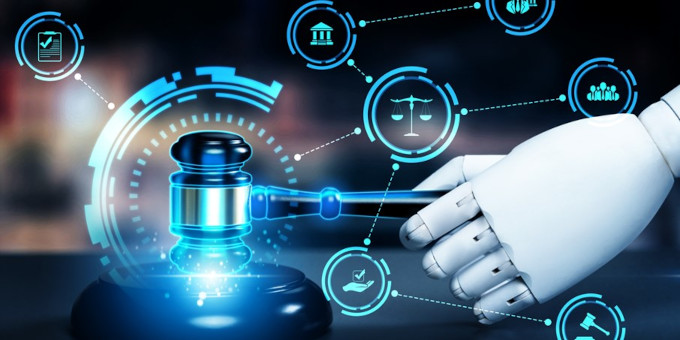The practice of law has always been an important aspect of society. As the world becomes increasingly digitized and interconnected, the legal profession must adapt to keep up with emerging trends and technologies. In this article, we will explore some of the most significant changes that are transforming the legal landscape and discuss how they are shaping the future of lawyering.
Emerging Trends And Technologies
Artificial Intelligence
Artificial intelligence (AI) is poised to revolutionize the legal profession by streamlining many of the tasks that lawyers currently perform manually. AI-powered software can analyze large volumes of data and extract relevant information to help lawyers make more informed decisions. For example, AI-powered legal research tools can help lawyers find relevant case law and statutes in a matter of seconds rather than hours.
In addition, AI can help automate routine legal tasks such as contract review, document drafting, and due diligence. This will free up lawyers to focus on more strategic work and provide better value to their clients.
Blockchain
Blockchain technology has the potential to transform the legal industry by creating secure, immutable records of legal transactions. Smart contracts, which are self-executing contracts that are recorded on a blockchain, have the potential to revolutionize the way that legal agreements are created and enforced.
For example, a smart contract could be used to automate the process of executing a will. The terms of the will could be encoded into the smart contract, and the contract could automatically distribute the assets according to the deceased’s wishes. This would eliminate the need for costly and time-consuming probate proceedings.
Virtual And Augmented Reality
Virtual and augmented reality technologies have the potential to transform the way that lawyers interact with their clients and the courts. For example, virtual reality technology could be used to create immersive simulations of crime scenes, which could help lawyers and jurors better understand the facts of a case.
In addition, augmented reality technology could be used to create virtual courtrooms, which would allow lawyers and judges to conduct proceedings remotely. This would reduce the need for travel and make the legal system more accessible to people in remote or underserved areas.
Cloud Computing
Cloud computing has become an essential tool for lawyers, enabling them to work from anywhere and collaborate with colleagues and clients in real time. Cloud-based legal practice management software has become increasingly popular in recent years, providing lawyers with tools to manage their cases, track billable hours, and communicate with clients.
In addition, cloud-based document storage and sharing platforms have made it easier for lawyers to collaborate on documents and share information securely with clients.
Cybersecurity
As the legal industry becomes more digitized, cybersecurity has become a critical concern for law firms. Cyberattacks can compromise confidential client information, damage a firm’s reputation, and result in costly legal and regulatory actions.
To combat these threats, law firms are investing in cybersecurity technologies such as multi-factor authentication, encryption, and intrusion detection systems. In addition, lawyers are increasingly being trained on cybersecurity best practices to help prevent cyber threats.
Big Data Analytics
The legal industry generates vast amounts of data, including case law, statutes, and legal documents. Big data analytics tools can help lawyers sift through this information to identify patterns, trends, and insights that can inform legal strategy.
For example, analytics tools can help lawyers identify key risk factors in a case, such as the likelihood of a successful outcome based on similar cases, and help lawyers develop evidence-based strategies to achieve the best possible outcome for their clients.
E-Discovery
E-discovery refers to the process of identifying, collecting, and producing electronically stored information (ESI) in the context of a legal proceeding. With the increasing amount of information stored electronically, e-discovery has become an essential component of modern litigation.
E-discovery tools can help lawyers efficiently manage large volumes of data and identify relevant information. For example, e-discovery tools can search through email messages, social media posts, and other digital communications to identify evidence that is relevant to a case.
Online Dispute Resolution
Online dispute resolution (ODR) is a method of resolving disputes outside of traditional courts using online technology. ODR platforms can help parties resolve disputes more efficiently and cost-effectively, without the need for lengthy court proceedings.
ODR platforms can be used for a wide range of disputes, including small claims, employment disputes, and family law matter. By using ODR platforms, parties can resolve disputes quickly and easily, without the need for lawyers or other intermediaries.
Legal Chatbots
Legal chatbots are automated tools that can provide legal information and guidance to users through a chat interface. Chatbots can be used to answer common legal questions, provide legal advice, and help users find relevant legal resources.
For example, a legal chatbot could be used to help users determine whether they have a valid legal claim and provide guidance on the steps they need to take to pursue their claim. Chatbots can help make legal information and services more accessible to a wider range of users, including those who may not be able to afford traditional legal services.
Predictive Analytics
Predictive analytics tools use statistical algorithms to analyze data and make predictions about future outcomes. In the legal context, predictive analytics can be used to forecast the likely outcome of a case based on past cases with similar characteristics.
For example, predictive analytics tools can help lawyers identify which cases are most likely to settle, and which cases are most likely to go to trial. This can help lawyers develop evidence-based strategies that are more likely to achieve a favourable outcome for their clients.
Benefits Of Emerging Lawyering
There are many potential benefits to emerging trends and technologies in the legal industry. Here are some of the major advantages:
Increased Efficiency: Technologies such as AI, automation, and e-discovery can help lawyers work more efficiently and complete tasks more quickly, which can help reduce costs and increase productivity.
Improved Access to Legal Services: By leveraging digital platforms and tools, lawyers can reach a wider range of clients and provide legal services to underserved populations. Online dispute resolution, for example, can help make legal services more accessible and affordable.
Better Client Service: By using data analytics and other technologies, lawyers can gain deeper insights into their client’s needs and preferences, and provide more personalized and effective legal services.
More Effective Legal Strategies: Data analytics tools can help lawyers identify patterns and trends in legal cases, which can inform legal strategies and lead to better outcomes for clients.
Greater Collaboration: Digital tools and platforms can facilitate collaboration among lawyers, clients, and other stakeholders in the legal process, which can lead to more effective teamwork and improved outcomes.
Overall, the use of emerging trends and technologies in the legal industry has the potential to revolutionize the way that lawyers work and to improve access to legal services and outcomes for clients. By embracing these changes and developing responsible frameworks for their use, the legal industry can position itself for success in the years to come.
Problems Of Emerging Lawyering
While there are many potential benefits to emerging trends and technologies in the legal industry, there are also several challenges that need to be addressed. Some of the major problems that may arise include:
Cost: Many of these technologies require significant investment, and small law firms or solo practitioners may not have the resources to adopt them.
Ethics and Privacy: Emerging technologies such as AI and big data analytics raise ethical and privacy concerns, particularly in relation to the use of personal data and the potential for biased decision-making.
Security: As with any technology, there are potential security risks associated with using cloud-based storage, online platforms, and other digital tools.
Standardization: With so many emerging technologies being developed, there is a risk of fragmentation and lack of standardization in the legal tech industry, which could hinder interoperability and adoption.
Lack of Human Touch: While technology can certainly improve efficiency and streamline processes, there is a risk that it could also erode the personal connection between lawyers and their clients, which is a key aspect of the legal profession.
It is important for the legal industry to address these issues and develop frameworks for the ethical and responsible use of emerging technologies. Additionally, lawyers need to remain mindful of the importance of maintaining a human touch and personal connection with their clients, even as technology continues to transform the way that they work.
Conclusion
The legal profession is undergoing a rapid transformation as emerging technologies and trends reshape the way that lawyers work and interact with their clients. Artificial intelligence, blockchain, virtual and augmented reality, cloud computing, and cybersecurity are just a few of the technologies that are driving this change.
To stay competitive in this rapidly evolving landscape, lawyers must be willing to embrace these technologies and adapt their practices accordingly. By doing so, they can provide better value to their clients, work more efficiently, and position themselves for success in the future of lawyering.








Leave A Comment